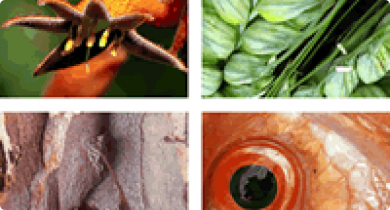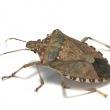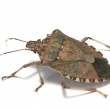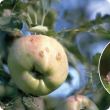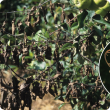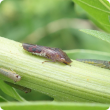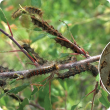Biosecurity & quarantine
The Department of Agriculture and Food, Western Australia (DAFWA) works with primary industries to safeguard our agricultural resources from biological threats and to maintain our export opportunities.
The State’s reputation is underpinned by a comprehensive biosecurity and quarantine system, developed and operated by DAFWA.
DAFWA is involved with:
- creation of surveillance and diagnostic programs
- animal and plant risk assessments
- importing and exporting requirements
- creating mechanisms to respond to incursions
- livestock movement and identification
- development and maintenance of biosecurity and quarantine legislation.
To find out more about what we do to protect agricultural production and export opportunities within the State please search our website.
Filter by search
Filter by topic
- Biosecurity (350) Apply Biosecurity filter
- Pests, weeds & diseases (267) Apply Pests, weeds & diseases filter
- Diseases (162) Apply Diseases filter
- Livestock & animals (160) Apply Livestock & animals filter
- Livestock biosecurity (155) Apply Livestock biosecurity filter
- Livestock health & diseases (114) Apply Livestock health & diseases filter
- Livestock disease surveillance (104) Apply Livestock disease surveillance filter
- Livestock species (102) Apply Livestock species filter
- Plant biosecurity (98) Apply Plant biosecurity filter
- Crops (86) Apply Crops filter
- Pests (74) Apply Pests filter
- Horticulture (68) Apply Horticulture filter
- Livestock management (61) Apply Livestock management filter
- Quarantine (54) Apply Quarantine filter
- Invasive species (45) Apply Invasive species filter
- Sheep (43) Apply Sheep filter
- Pest insects (42) Apply Pest insects filter
- Livestock movement & identification (41) Apply Livestock movement & identification filter
- Importing to Western Australia (41) Apply Importing to Western Australia filter
- Beef cattle (35) Apply Beef cattle filter
- Emergency animal disease preparedness (34) Apply Emergency animal disease preparedness filter
- Fruit (32) Apply Fruit filter
- Emergency response (29) Apply Emergency response filter
- Dairy cattle (27) Apply Dairy cattle filter
- Control methods (26) Apply Control methods filter
- Biosecurity governance (23) Apply Biosecurity governance filter
- Importing animals (23) Apply Importing animals filter
- Vegetables (20) Apply Vegetables filter
- Chemicals (20) Apply Chemicals filter
- Pest animals (20) Apply Pest animals filter
- Weeds (19) Apply Weeds filter
- Management & reproduction (19) Apply Management & reproduction filter
- Intrastate movement (18) Apply Intrastate movement filter
- Fungi (18) Apply Fungi filter
- Poultry & birds (16) Apply Poultry & birds filter
- Pigs (16) Apply Pigs filter
- Horses (14) Apply Horses filter
- Goats (14) Apply Goats filter
- Declared plants (14) Apply Declared plants filter
- Exporting from Western Australia (14) Apply Exporting from Western Australia filter
- Potatoes (12) Apply Potatoes filter
- Quality assurance schemes (12) Apply Quality assurance schemes filter
- Industry Funding Schemes (12) Apply Industry Funding Schemes filter
- Grapes & wine (12) Apply Grapes & wine filter
- Citrus (12) Apply Citrus filter
- Climate, land & water (12) Apply Climate, land & water filter
- Nursery & cutflowers (11) Apply Nursery & cutflowers filter
- Importing plant and plant products (11) Apply Importing plant and plant products filter
- Agricultural emergency response (10) Apply Agricultural emergency response filter

